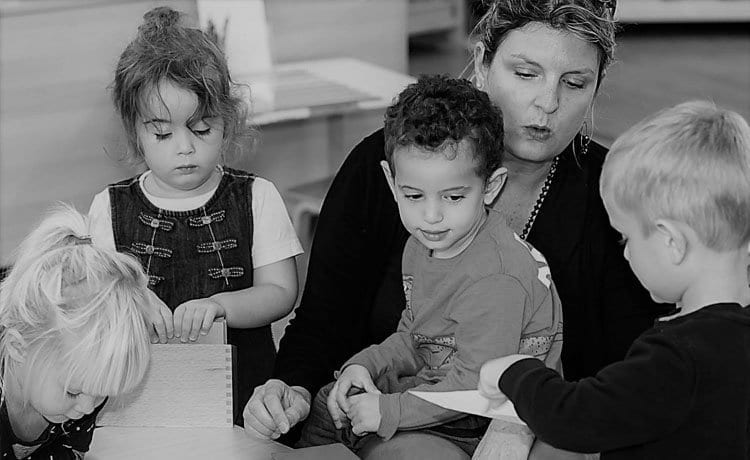The Montessori educational approach started with Dr Maria Montessori’s work with a group of children from a deprived part of Rome in the early 1900’s. Having previously trained to become a physician, Montessori began to develop her own educational philosophy and methods at the same time as reading the educational theories of the previous 200 years.
Montessori’s formal medical training enabled her to adopt a unique scientific approach to her work. She observed the children over sustained periods, studying their development in terms of both physical and cognitive capability.
The fundamental conclusion she drew from her work was that children “learn to teach themselves” if provided with the right environment to do so.
Montessori once famously quoted that, “Education is a natural process spontaneously carried out by the individual, and is acquired not by listening to words, but by experiences upon the environment”.
Montessori’s observations led her to believe that children who are at liberty to choose and act freely within an environment prepared according to her model would act spontaneously for optimal development. Her methods have since been used to great effect for over 100 years and across the whole globe, irrespective of cultural or linguistic differences.
Furthermore, the science of today concurs with Montessori’s original studies and beliefs.
Today, the “specially prepared environments” originally defined by Maria Montessori continue to develop and evolve under the stewardship of the Association Montessori Internationale (AMI), in conjunction with many thousands of AMI trained Montessori Guides worldwide.
